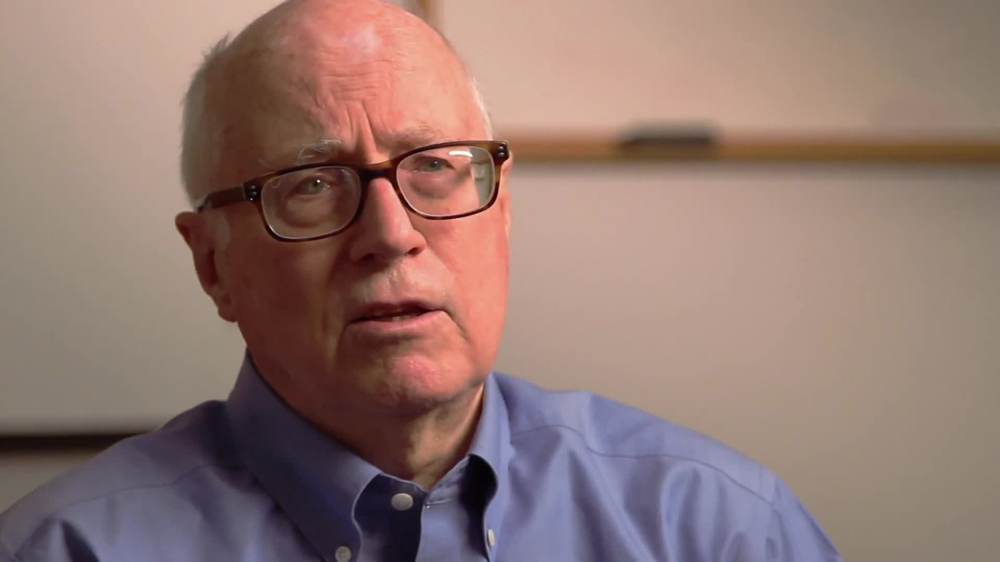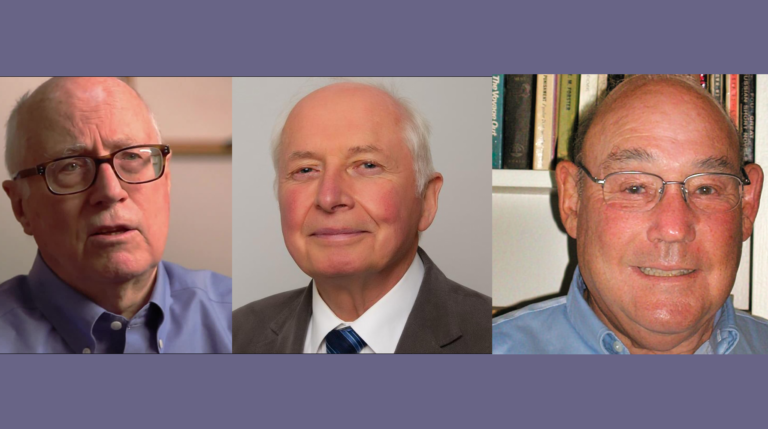This past spring marked the passing of three towering figures in the economics of innovation: Richard “Dick” Nelson, J. Stanley Metcalfe, and Frederic M. Scherer. Their deaths close a chapter in the history of a field they helped to create and define. Their influence on science and technology policy has been profound.
Mark Knell, Research Professor NIFU
Each reshaped how economists think about technological change, competition, and policy. Nelson gave us an evolutionary framework for understanding innovation, Metcalfe deepened and institutionalized it in Europe, and Scherer anchored it in the rigorous tradition of industrial organization. Together they built the foundations of innovation economics as we know it today, leaving behind ideas and institutions that continue to guide both scholarship and policy.
Richard R. Nelson (4 May 1930 – 28 January 2025)
Richard R. Nelson transformed the study of innovation into a central concern of economics. His early work at the National Bureau of Economic Research in the 1950s placed R&D and science at the heart of growth analysis. In The Simple Economics of Basic Scientific Research (1959), he showed that basic science yields large social returns but limited private ones, providing the rationale for strong public support. This laid the foundations for the economics of science and technology policy.

His most influential work came with Sidney G. Winter in An Evolutionary Theory of Economic Change(1982). The book rejected neoclassical models of perfectly rational firms. Instead, Nelson and Winter argued that firms operate through routines – regular patterns of behaviour that act as the economic analogue of genes. Firms adapt under bounded rationality, experimenting, imitating, and learning by doing.
Drawing on Darwin, they showed how industries evolve through variety and selection, producing persistent heterogeneity and path-dependent technological trajectories. Their simulation models demonstrated how entry, exit, and diffusion could drive productivity growth without equilibrium assumptions. The book launched evolutionary economics as a coherent research programme across economics, management, and innovation studies.
Nelson extended this framework to the institutional and national level. In National Innovation Systems(1993), he showed how firms, universities, governments, and culture shape innovative capacity. Later works – The Sources of Economic Growth (1996), Technology, Institutions, and Economic Growth (2005), and Modern Evolutionary Economics: An Overview (2018) – developed a vision of economic change as the co-evolution of technologies, organizations, and institutions.
In essays on the “scientific commons,” Nelson defended the openness of science, warning that excessive privatization of knowledge threatened cumulative learning and long-run growth. He urged policymakers to protect diffusion, openness, and variety as essential conditions for innovation. His later writings highlighted the risks of inequality and short-termism, stressing that innovation is always a social and institutional process.
Nelson’s work remains foundational for innovation studies, offering an evolutionary and historically grounded economics that continues to inspire.
J. Stanley Metcalfe (20 March 1946 – 15 March 2025)
J. Stanley Metcalfe was central in advancing evolutionary economics in the United Kingdom and Europe. Educated at the University of Liverpool and long based at the University of Manchester, he built a vibrant centre for research on industrial change and innovation. His scholarship emphasized firm diversity, the experimental character of markets, and the open-ended nature of technological advance.

Metcalfe’s most important book, Evolutionary Economics and Creative Destruction (1998), revisited Schumpeter’s insights through an evolutionary lens. Innovation, he argued, transforms industries not through smooth adjustment but through variety, competition, and selection. The book remains a landmark statement of evolutionary thinking and its policy relevance.
Earlier collaborations with Ian Steedman brought evolutionary perspectives into international trade, showing that comparative advantage is shaped by innovation and learning rather than fixed endowments. He also contributed to research on technological diffusion, emphasizing how adoption depends on firm strategies, networks, and institutional environments.
Metcalfe was an institution builder as well as a scholar. He helped shape the UK’s Economic and Social Research Council programmes on competition and innovation, embedding evolutionary perspectives in policy debates. As founding editor of the Journal of Evolutionary Economics, he gave the field an international platform. His policy stance was clear: governments should support variety, experimentation, and adaptive learning, not preserve incumbent structures.
Metcalfe advanced evolutionary economics as both theory and policy, leaving a legacy that continues to shape research and public debate.
Frederic M. Scherer (1 August 1932 – 25 May 2025)
Frederic M. Scherer was one of the foremost scholars of industrial organization and innovation. His widely used textbook Industrial Market Structure and Economic Performance (1970) trained generations of economists and remains a standard reference.

Scherer’s research clarified the relationship between market structure and innovation. He showed that while competition often stimulates innovative activity, some market power is needed to sustain costly R&D. His empirical work on patents and appropriability regimes provided systematic evidence on how intellectual property shapes incentives and technological progress.
Beyond academia, Scherer contributed directly to policy. He advised US government agencies, worked on antitrust enforcement, and engaged in international debates on patent reform. He consistently argued that industrial economics should inform both scholarship and public decision-making.
Scherer deepened understanding of how competition drives innovation, combining rigor with relevance in ways that still guide the field.
Together
Nelson, Metcalfe, and Scherer built complementary traditions in innovation economics. Nelson created the evolutionary framework, Metcalfe advanced and institutionalized it in Europe, and Scherer grounded innovation studies in industrial organization. Each linked theory with policy and evidence, ensuring that innovation became central to economics. Their passing marks the end of an era, yet their legacies endure – shaping how we understand technological change and leaving a lasting imprint of intellect and curiosity.
Top illustration: Getty

